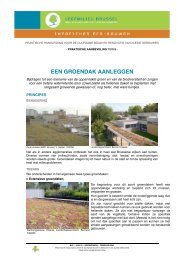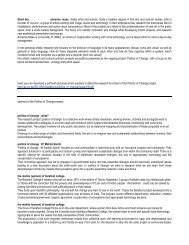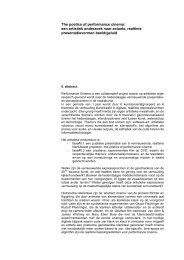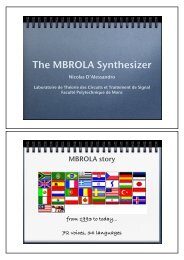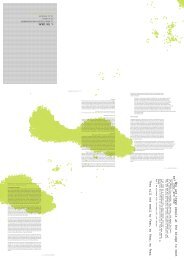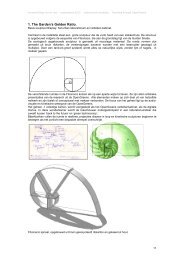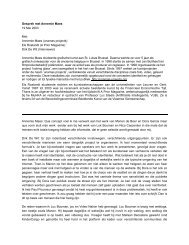MANIFESTO
MANIFESTO
MANIFESTO
You also want an ePaper? Increase the reach of your titles
YUMPU automatically turns print PDFs into web optimized ePapers that Google loves.
Section 8<br />
KNOWLEDGE TRANSITION FOR CLIMATE ADAPTATION<br />
Climate change is the ultimate test for our collective intelligence as humanity.<br />
Industrial agriculture has destroyed vital aspects of knowledge of local<br />
ecosystems and agricultural technologies which are necessary for making the<br />
transition to a post-industrial, fossil fuel-free food system. The diversity of<br />
cultures and of knowledge systems required for adapting to climate change<br />
need recognition and enhancing through public policy and investment. A new<br />
partnership between science and traditional knowledge will strengthen both<br />
knowledge systems and enhance our capacity to respond.<br />
Industrial agriculture is based on a reductionist, mechanistic paradigm and is an<br />
outmoded and fragmented way of looking at the world. The industrial paradigm<br />
replaces intimate knowledge of biodiversity and ecosystems with careless<br />
technologies such as use of agrichemicals which destroy biodiversity and soil,<br />
pollute air and water and destabilise the climate. Traditional and indigenous<br />
knowledge systems are based on plurality and diversity, necessary principles for<br />
adaptation that are increasingly needed because of climate change.<br />
The diversity of agricultural knowledge systems has developed over generations<br />
in thousands of different eco-systems and varying cultural conditions. The<br />
chemical industrial paradigm of agricultural science and technology emerged<br />
in the course of the 19 th century in Europe and America and improved the<br />
productivity of particular crops in many parts of the world. However, the entire<br />
calculus of productivity of industrial agriculture is based on externalization of<br />
costs and increased energy inputs.<br />
Such progress increased dependence on fossil fuels, displaced farmers and led<br />
to an erosion of a wealth of traditional knowledge, of indigenous approaches to<br />
agriculture and the extinction of many specializations in horticulture, farming,<br />
forestry, animal husbandry, aquaculture and other forms of agriculture, as well<br />
as of food preparation and medicines.<br />
While increasing external energy inputs, large-scale industrial agriculture and<br />
shifts in the control of land and water and other natural resources resulted in<br />
a steep decrease of the number of people working in primary production and<br />
40 / 41




